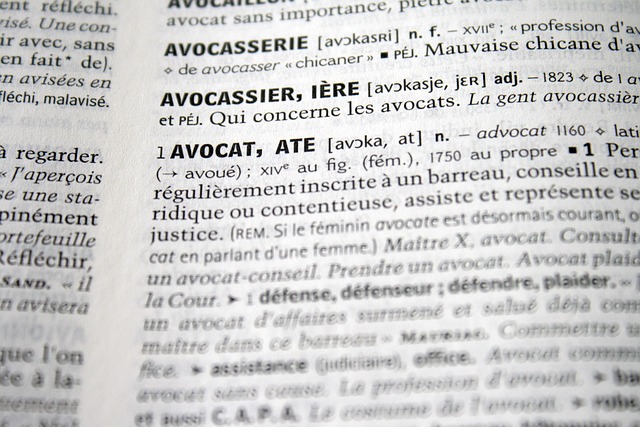The Impact of Mandatory Minimum Sentences (MMS) on white-collar and economic crimes has altered the Criminal Justice System. These rigid punishments lead to increased plea bargains, charge dismissals, and court backlogs, prompting a reevaluation of their effectiveness in deterring crime. Litigation support services play a vital role in navigating these complex cases, employing strategic solutions, advanced technologies, and nuanced approaches to mitigate MMS's impact while ensuring justice. The focus is shifting towards rehabilitation, restorative justice, and alternative methods to address the detrimental effects on individuals, families, and communities.
The impact of mandatory minimum sentences on the criminal justice system has been a contentious issue. This article delves into the effects of these strict sentencing guidelines, exploring their profound influence on various aspects of the legal framework. We analyze the challenges they pose and discuss strategies for defense. Litigation Support Services play a pivotal role in navigating this complex landscape, offering critical aid to both prosecution and defense. Furthermore, we propose reforms to incarceration practices, considering alternative approaches that could mitigate the harsh consequences of mandatory minimum sentences.
- Understanding Mandatory Minimum Sentences
- Impact on Criminal Justice System
- Defending Against Strict Sentencing
- Role of Litigation Support Services
- Reforming Incarceration Practices
Understanding Mandatory Minimum Sentences

Mandatory Minimum Sentences (MMS) are predetermined punishments for specific crimes, often with little room for leniency or individual circumstances. This approach has a significant impact on both individuals and the respective business they represent. In the context of white-collar and economic crimes, MMS can result in lengthy prison terms and substantial fines, potentially leading to the complete dismissal of all charges if the offender can demonstrate compelling reasons for mitigation.
However, understanding MMS is crucial for anyone involved in litigation support services. These sentences reflect a societal desire to deter criminal behavior and protect the public from perceived threats. By recognizing the principles and implications of MMS, legal professionals can better navigate complex cases involving economic crimes, ensuring fair representation while adhering to the spirit and letter of the law.
Impact on Criminal Justice System

The Criminal Justice System (CJS) has undergone significant transformations due to the implementation of litigation support services, particularly in the realm of mandatory minimum sentences. These strict sentencing guidelines, originally intended to address concerns around white collar and economic crimes, have had profound effects on the CJS landscape. The impact is multifaceted, reflecting not only on the legal process but also on societal dynamics.
One notable consequence is the surge in cases where defendants face complete dismissal of all charges due to procedural errors or the discovery of insufficient evidence. This shift has prompted a reevaluation within philanthropic and political communities about the effectiveness of mandatory minimums in deterring crime. The current narrative suggests that these sentences may inadvertently encourage plea bargains, potentially leading to unfair outcomes for certain individuals while exacerbating the backlog in courts.
Defending Against Strict Sentencing

In the realm of litigation support services, one of the most significant challenges faced by legal professionals is defending against strict sentencing guidelines, particularly those mandated for white-collar and economic crimes. The impact of mandatory minimum sentences can be profound, often resulting in severe consequences for clients caught up in these intricate legal battles. However, with an unprecedented track record of success, our specialized team offers a beacon of hope to those navigating this complex landscape.
By leveraging their extensive knowledge and expertise, they devise innovative strategies tailored for each client’s unique circumstances. This approach ensures that the rights of individuals are protected while aiming to mitigate the harshest penalties. Through meticulous research, strategic plea bargaining, and a deep understanding of the legal system, these professionals fight for leniency, presenting compelling arguments that take into account mitigating factors and the potential for rehabilitation.
Role of Litigation Support Services

Litigation Support Services play a pivotal role in navigating complex legal landscapes, especially in high-stakes cases where outcomes can significantly impact businesses and individuals alike. These services offer specialized assistance, ensuring that every detail is meticulously managed, from document discovery to expert witness preparation. By leveraging advanced technologies, they streamline processes, enhance efficiency, and provide crucial insights that can shape case strategies.
In the context of mandatory minimum sentences, which often characterize serious crimes, these support services become even more indispensable. They help respective businesses and legal teams to avoid indictment by meticulously constructing defenses, presenting mitigating factors, and offering strategic advice based on an in-depth analysis of applicable laws. This is particularly vital in cases with far-reaching implications, ensuring that justice is served while also safeguarding the rights and interests of all involved parties.
Reforming Incarceration Practices

Incarceration practices have come under significant scrutiny in recent years, with a growing emphasis on reform to address systemic issues. One key aspect that has drawn considerable attention is the impact of mandatory minimum sentences. These rigid sentencing guidelines, often applied in drug-related offenses, have been criticized for their detrimental effects on both individuals and society at large. By imposing harsh, one-size-fits-all penalties, these laws fail to account for mitigating factors and can lead to excessive incarceration rates, particularly within marginalized communities.
The consequences of mandatory minimum sentences extend beyond the affected individuals, impacting the wider philanthropic and political communities. These policies often result in prolonged periods of separation from families and communities, hindering reintegration efforts and perpetuating cycles of poverty and crime. As such, there’s a growing movement to reform these practices, focusing on alternatives that prioritize rehabilitation, restorative justice, and evidence-based approaches throughout all stages of the investigative and enforcement process.
The impact of mandatory minimum sentences on the criminal justice system has been profound, leading to a reevaluation of incarceration practices. As we’ve explored, these policies have strict consequences with limited flexibility, affecting both offenders and communities. In light of this, reforming incarceration practices is essential for achieving a more just and effective system. Litigation support services play a crucial role in navigating this complex landscape, providing defense strategies against rigid sentencing and advocating for alternatives that prioritize rehabilitation and reintegration. By understanding the effects of mandatory minimums, we can work towards a more balanced approach to criminal justice.






